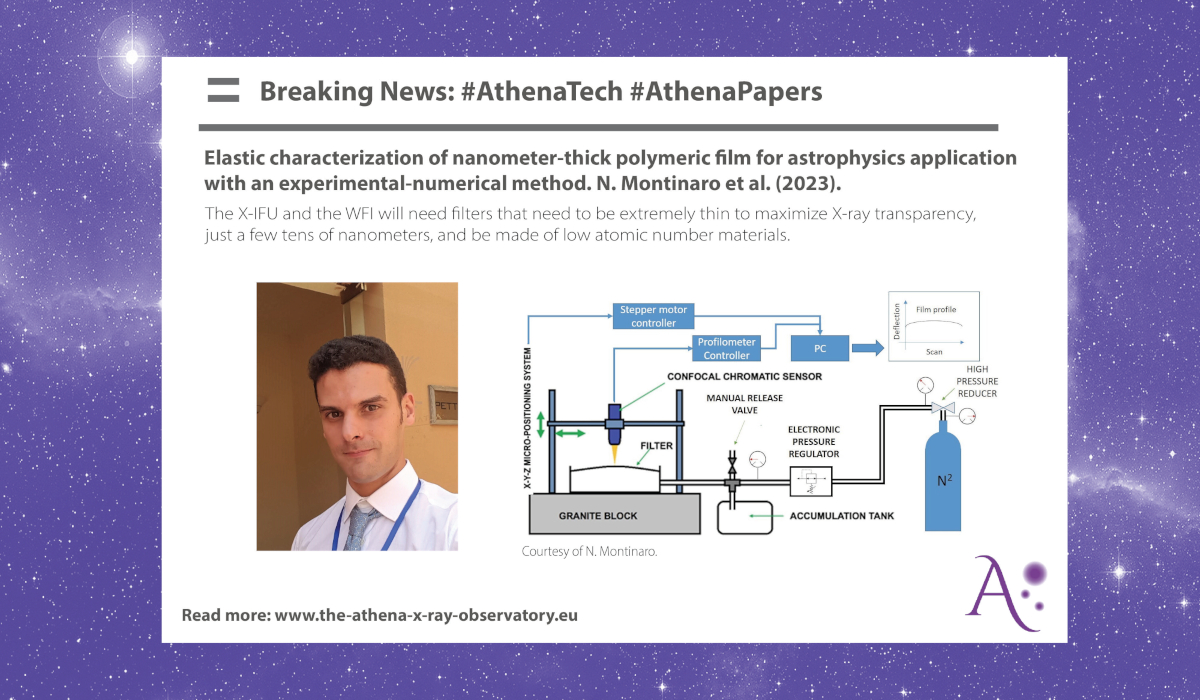
Elastic characterization of nanometer-thick polymeric film for astrophysics application with an experimental-numerical method

By N. Montinaro,
The large-class astrophysics space mission Athena will be equipped with an X-ray telescope and two interchangeable focal plane instruments named X-ray Integral Field Unit (X-IFU) and Wide Field Imager. Both instruments will need filters that need to be extremely thin to maximize x-ray transparency, just a few tens of nanometers, and be made of low atomic number materials; the baseline adopted for the Athena filters is a thin layer of polyimide (PI) coated with Al (a low-Z metal).
Due to the large size of the filter membrane (from a few tens to a few hundred square centimeters) and the extreme aspect ratio, together with severe loading conditions during launch and different stoichiometries of the polymer that could change its mechanical properties, a characterization study of the employed material is needed. The plane strain bulge test is a well-accepted methodology for the mechanical testing of structures that are less than a micrometer thick, and especially for freestanding membranes. Unfortunately, testing such ultra-thin films is not a simple task due to residual stress and experimental uncertainty at very low pressure. In this work, the elastic properties of an extremely thin (between 45 and 415 nm) membrane made of bare polyimide and coated with aluminium were derived through adopting a combined experimental-numerical methodology based on the bulge test and numerical simulations.

